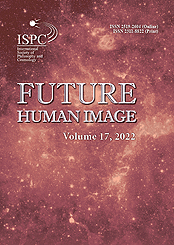The “Soft Power” of Chinese Marxism as a Factor in the Educational Landscape of the Future
The “Soft Power” of Chinese Marxism as a Factor in the Educational Landscape of the Future
Author(s): Serhiy TerepyshchyiSubject(s): Marxism, State/Government and Education
Published by: Международное философско-космологическое общество
Keywords: soft power; educational landscape; regionalization; globalization; Chinese Marxism;
Summary/Abstract: This paper presents the concepts of regionalization and globalization in the context of higher education. The analysis was carried out in the light of the explication of the concept of “soft power” of Chinese Marxism. The methodological basis of the work is the statement that globalization does not create a conflict between homogeneous and heterogeneous, moreover, the latter contributes to the topological flow of the global to the localized. The ambiguity of the driving forces of educational reforms is emphasized, which leads to the presence of only speculative constitution of globalization. Nevertheless, its consequences are a number of reforms and facts that have provided a good basis for revealing the phenomenon of glocalization of the educational landscape on the example of China. It was found that the specificity of the latest epistemological doctrine within the Western educational landscape is closely related to the postmodern method of knowledge production, the implementation of which leads to crisis and asynchronous changes in higher education. At the same time, Chinese Marxism reveals and intensifies a number of productive practices in Chinese higher education, which makes it part of China’s “soft power” in the global arena.
Journal: Future Human Image
- Issue Year: 2022
- Issue No: 17
- Page Range: 47-59
- Page Count: 14
- Language: English

